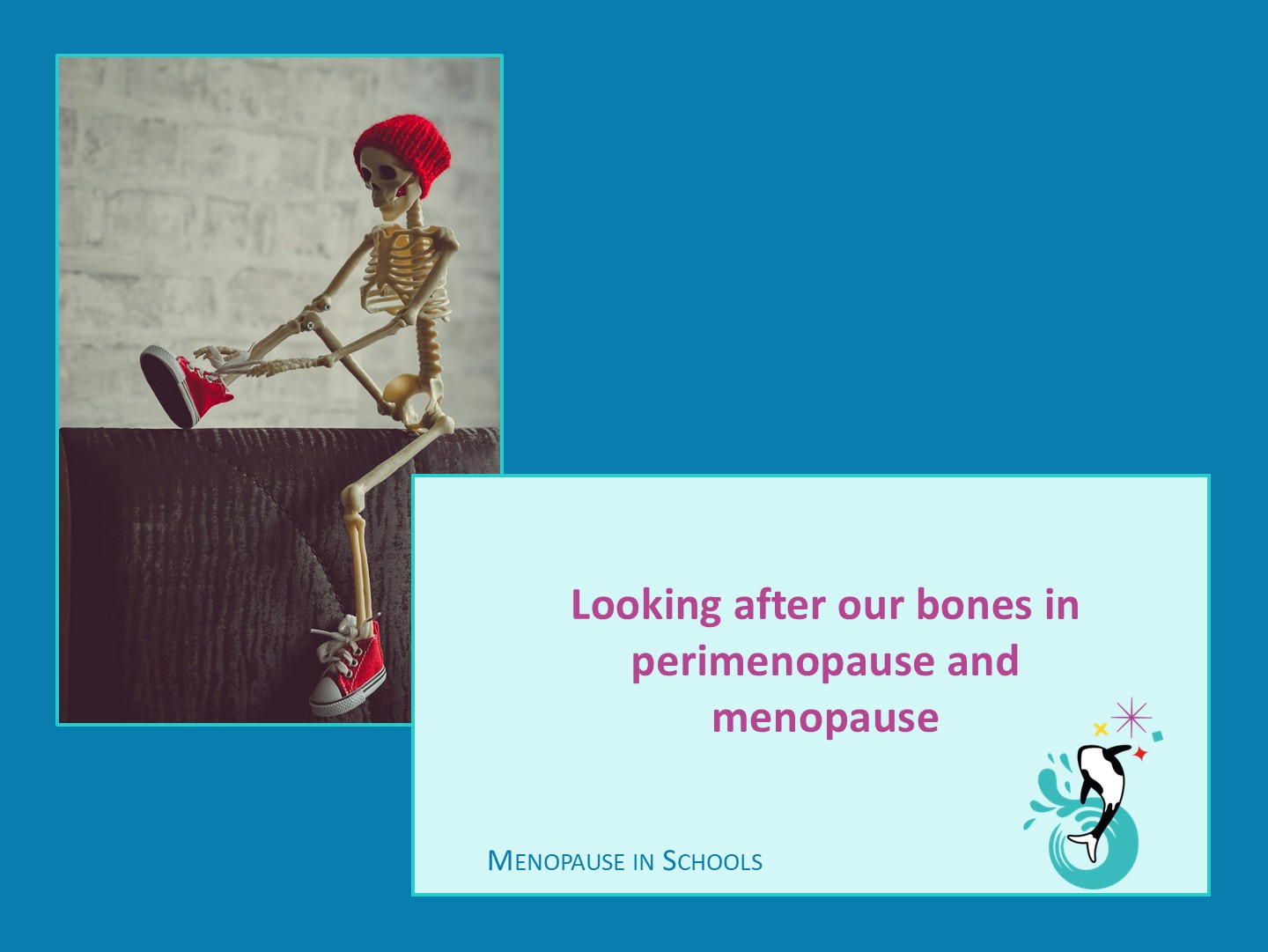According to the Royal Osteoporosis society, half of women over 50 will break a bone due to osteoporosis.
As our bodies lose oestrogen the cells in our bones that make more bones become less active. We can lose bone density and that can put us at risk of osteoporosis and bones that break more easily.
That’s a hard fact to swallow but something we have to take very seriously.
HRT
The decision to take (or keep on taking) HRT can be complex — there may be various risks and benefits to take into account. One of those benefits is that it reduces fractures and prevents osteoporosis. That’s especially important if you have an early menopause or have a family history of osteoporosis.
HRT can help even if you’ve already got osteopenia (lesser bone loss or early stages of osteoporosis) or osteoporosis and there are also other drugs that your doctor can prescribe.
Checking your bones
Your bones can be checked using a DEXA scan. It usually only happens once you’ve broken a bone or if there’s another reason to suspect your bones might have lost a lot of density. I personally am of the opinion that routine checks on post-menopausal women might well be worth the risk, but the NHS only tends to check those at high risk.
It’s definitely worth asking for one if you’ve had an early menopause, if you have a family history, if you’ve taken a lot of steroids, if you smoke, or if your height has dropped by more than a couple of centimetres.
There’s an osteoporosis risk checker here
Diet
Most of us who have dairy in our diet get enough calcium. It’s also in green leafy vegetables. You might need to supplement if your diet is likely to be low in calcium.
The other crucial nutrient is vitamin D. Most of us don’t get enough in sunlight, especially in the winter, although it is foods such as margarine and breakfast cereals. Many doctors and menopause specialists advise Vitamin D supplementation. It is possible to have too much vitamin D so you probably should avoid extra strength supplements unless you’ve checked with your doctor.
Having plenty of protein will also help maintain your bones. Meat, dairy and eggs are complete proteins with all the necessary amino acids. If you are relying on plant protein you may have to combine protein from grain and protein from pulses to get the essential amino acids.
Exercise
This is the biggie. Weight bearing exercise (that puts impact through your feet) helps build bone. And the sooner your start the better — the exercise we did earlier in life gives us an advantage too. Exercising with weights is also very important. There are lots of excellent videos for menopausal women and older people on YouTube. Some of them are pretty short and you can start with small weights. It’s never helpful to push things too hard.
Last week I spoke to Ashley Gluchowski an exercise specialist at The University of Salford who confirmed that walking alone didn’t give enough impact to protect bones — although running, jumping and some kinds of dancing can.
If you already have some osteoporosis or osteopenia then there are certain movements, including twisting of the spine that are best avoided. There are osteoporosis friendly exercise videos on YouTube and you should also let anyone running exercise classes know what your situation is.
It’s very easy when our joints are hurting to avoid exercise and our bones can suffer. It’s also really easy to overdo it and end up having to rest which doesn’t help either.
Work within your limits. Be consistent. Listen to your body.
Make bone-health a priority
It’s really easy to ignore our bones. We can’t tell what’s going on with them — while we’re very aware of symptoms like brain fog or bleeding. Whatever is going on with them is going on unseen and unfelt until a bone is broken and we really don’t want to wait until that happens.
Make the choices that will keep your bones in good shape. Your future self will thank you for it!

